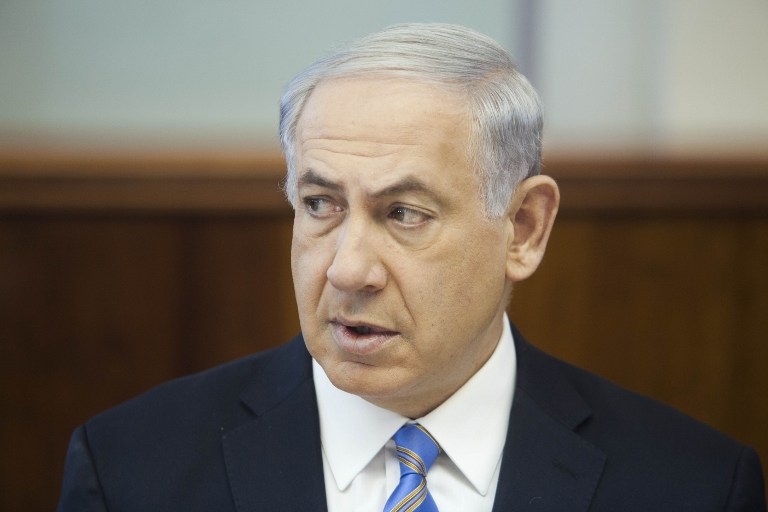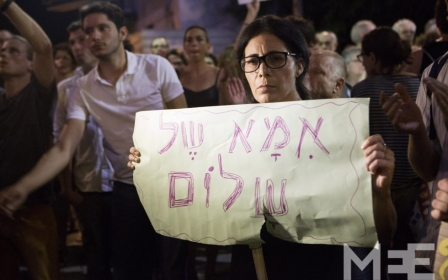Netanyahu's four key errors

As the trickle of senior Israeli army officers talking up the military achievements of the last three weeks has turned into a stream, one can assume they have had enough of the carnage they have visited on Gaza and now want to disengage.
Much of what they say is contradictory: 31 of Hamas' attack tunnels have been destroyed, but yes, they acknowledge Hamas can build more. Hamas has been hit hard, but no, according to their intelligence, it still has 3,000 short-range rockets and some medium-range ones.
The havoc wreaked on Gaza is both a good thing - it has bombed its infrastructure back to pre-2006 levels - and a bad thing. One army man even admitted they needed Hamas to stay in charge to keep control of other groups.
On the Hamas side of the fence, the message is unambiguous: Is this the worst Israel could do? Hamas is militarily intact and able to fight on. Politically, the Israeli attack has cemented the unity of the Palestinian factions, placed Hamas on top of the pile and exposed the alliance of Arab States behind Israel, thus weakening it.
This is just the start of what will become a trade of verbal salvos when the fighting stops. But it is clear, even at this stage, that the strategic calculation of this punishment raid has gone badly wrong. Three assumptions were key to Benjamin Netanyahu's calculations: that the moment had come to hit a Hamas weakened by the loss of funds from Iran and support from Egypt; that Gazans would blame Hamas for the destruction Israel caused; that Egypt and Saudi Arabia would have Israel's back.
On the first assumption, Hamas and Islamic Jihad proved themselves to be better prepared and stronger in combat than the Israeli army anticipated. So much for the deterrent effect of previous sorties into the strip. Before the ground invasion, one commentator said it was as if the Flintstones were taking on the world's most sophisticated army. It did not turn out that way. Gaza's militants exacted casualties in the army's top brigades (63 soldiers and three civilians), half of the number who fell in the 2006 war with Hezbollah in Lebanon.
More importantly, shock and awe against Gaza did not have its intended effect. Gazans did not blame Hamas for this destruction, and the unity government between Fatah and Hamas has not fallen apart. The opposite has happened, and this is only in part due to the tactics Israeli forces employed. This war has seen so many civilian mass deaths and massacres that they are difficult to quantify.
Before the 24-hour bombardment of Rafah on Friday, the Palestinian Health Ministry reported that 70 families had been wiped out, or 579 people with another 1,000 injured. But even that measure does not give a scale of the civilian death toll.
Should one classify a massacre by the incident - the disabled centre, the four boys on the beach, the three boys in the pigeon loft - or by the area - Shejaiya (twice) Khusa, Rafah - or by the school - the seven UNWRA schools which were among 133 other UN facilities hit by shells and missiles? To claim, as Benyamin Netanyahu did, that Israel's war was not against civilians is either the height of cynicism or self-delusion or both.
But the reaction of Gaza was only partly a response to these tactics. The other driver was the siege itself - now eight years old. Gazans told themselves when the bombardment began that they had basically two options: to die now, or die a slow death later. They chose the former. Resistance has thus had a second coming, regardless of which organization leads it. Hamas has been boosted because it is the biggest and most active resistance movement, but even in a place as controlled as the West Bank where Fatah loyalties run deep, resistance has returned to the mainstream.
So no, when this ends, it will not be business as usual. Tzipi Livni, who as justice minister counts herself on the liberal fringe of the right wing- and settler-dominated cabinet, is kidding herself if she thinks she can now pick up the phone and get Mahmoud Abbas or Saeb Erekat on the other end. These assisters have since turned resisters, to the extent you cannot put a cigarette paper between the PLO position in the ceasefire talks in Cairo and Hamas.
The six conditions for a ceasefire reflect this: the immediate withdrawal of Israeli forces and guarantee of an end to incursions, bombing, and overflights; the end of the siege, opening of crossings, the guarantee of access between the West Bank and Gaza and reopening of an airport and a sea port in Gaza; the elimination of buffer zones; the release of all prisoners particularly those re-imprisoned after the Gilad Shalit deal; the immediate reconstruction of Gaza by the unity government; a donor conference. All are straight from the Hamas playbook. This surely is not a position Abbas or the PLO feel comfortable with, but they have little choice.
Netanyahu's third fatal error was to count on the support of Egypt and Saudi Arabia. It would have been wiser to keep their support for his attack on Hamas a well-kept secret. Bragging about it, as Israeli defence officials did, to demonstrate to a skeptical Western audience that fellow Arabs States wanted Hamas to get a good kicking, was a foolish thing to do.
Not for nothing has one of the Egyptian president's most vocal supporters, the Nasserite commentator Abdallah El-Senawi written in Shorouk about the damage Abdel Fattah al-Sisi has done to his own presidential image by supporting the Israeli war:
"In all honesty, terrible damage has been done to the reputation of the new President in the Arab world among diplomatic and media types. Despite the fact that some intend to return Egypt [to its former state], mistakes were made here before they happened there - vision is lacking....The regional scene in general, and particularly Egypt, seems weak in its solidarity with the Gazan ordeal. It is committing shameful political acts in the media in some cases, even though the issue is deeply connected to the fate of the entire region.”
One of Saudi Arabia's foremost political scientists Dr Khalid Al-Dakhil, a columnist for al-Ittihad newspaper wrote in al Hayat that Egypt had sacrificed its central role in the Arab world: "Egypt does not now possess any more the advantages to keep the centrality of its role or leadership in the Arab world." The same sense of humiliation is being felt on the Saudi Arabian street.
Saudis and Egyptians compare their own governments' reaction to that of Latin American countries who threw Israeli ambassadors out. They hear the condemnation from China and South Africa. Hamas' international standing has also been boosted. Khaled Meshaal received a personal letter from the South African president Jacob Zuma. In Colombia, there are demonstrations of people shouting "Viva Hamas."
There is a fourth miscalculation -- which may or may not have already began to take effect closer to home. We will only know in retrospect. And that is what is taking place in the minds of Palestinians outside Gaza, be they in the West Bank, residents of Jerusalem or citizens of Israel. It is easy to thread a narrative from the demonstrations at the Qalandia check point, the biggest for many years, to the driver of a digger running over a man and upending a bus in Jerusalem, to a drive by shooting at a soldier at a bus stop at the Hebrew University.
It is more difficult to identify the tipping point. The longer this war drags on, the greater the tension will become in Jerusalem. One other interesting sign -- Palestinian riot police no longer look fellow Palestinian demonstrators in the eye. They are too ashamed of what they are doing. And the green Hamas flags are ubiquitous. The war on Gaza could have just laid the foundations for another intifada.
- David Hearst is editor-in-chief of Middle East Eye. He was chief foreign leader writer of The Guardian, former Associate Foreign Editor, European Editor, Moscow Bureau Chief, European Correspondent, and Ireland Correspondent. He joined The Guardian, from The Scotsman, where he was education correspondent.
The views expressed in this article belong to the author and do not necessarily reflect the editorial policy of Middle East Eye.
Photo Credit: Israeli Prime Minister Benjamin Netanyahu is facing political pressure over his Gaza operation
New MEE newsletter: Jerusalem Dispatch
Sign up to get the latest insights and analysis on Israel-Palestine, alongside Turkey Unpacked and other MEE newsletters
Middle East Eye delivers independent and unrivalled coverage and analysis of the Middle East, North Africa and beyond. To learn more about republishing this content and the associated fees, please fill out this form. More about MEE can be found here.





